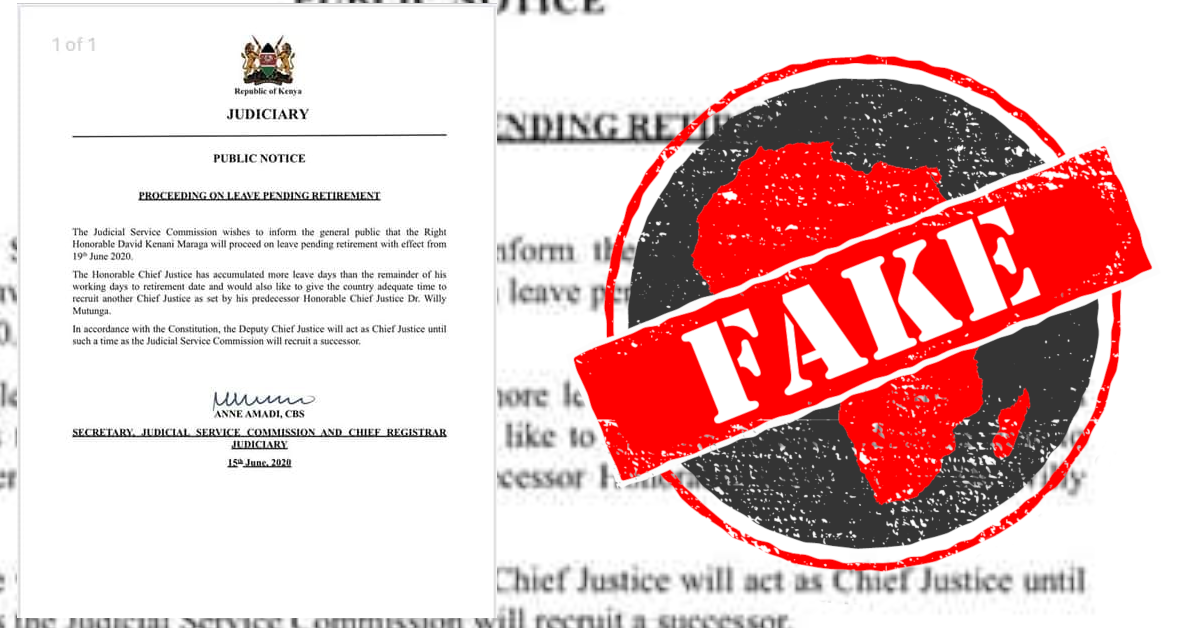An official-looking document announcing the retirement of Kenya’s chief justice has been posted on Facebook.
“The Judicial Service Commission wishes to inform the general public that the Right Honourable David Kenani Maraga will proceed on leave pending retirement with effect from 19th June 2020,” it reads.
Dated 15 June, the document seems to be on the letterhead of Kenya’s judiciary, and bears the country’s coat of arms. It is signed with the name of the judiciary’s chief registrar, Anne Amadi.
In early June, Maraga strongly criticised president Uhuru Kenyatta for disregarding two court orders on the appointment of judges. He has since been the target of false information.
Is the chief justice about to retire? Or is the document more disinformation?

The judiciary has posted the document on Facebook and Twitter with “FAKE” stamped on it and a single-word comment: “Fake.”
Section 167 of Kenya’s constitution reads: “A judge shall retire from office on attaining the age of seventy years, but may elect to retire at any time after attaining the age of sixty-five years.”
Maraga was sworn in on 19 October 2016. Born in 1951, he turns 70 on 12 January 2021, the date he is required to retire. – Dancan Bwire
“The Judicial Service Commission wishes to inform the general public that the Right Honourable David Kenani Maraga will proceed on leave pending retirement with effect from 19th June 2020,” it reads.
Dated 15 June, the document seems to be on the letterhead of Kenya’s judiciary, and bears the country’s coat of arms. It is signed with the name of the judiciary’s chief registrar, Anne Amadi.
In early June, Maraga strongly criticised president Uhuru Kenyatta for disregarding two court orders on the appointment of judges. He has since been the target of false information.
Is the chief justice about to retire? Or is the document more disinformation?

‘Fake’
The judiciary has posted the document on Facebook and Twitter with “FAKE” stamped on it and a single-word comment: “Fake.”
Section 167 of Kenya’s constitution reads: “A judge shall retire from office on attaining the age of seventy years, but may elect to retire at any time after attaining the age of sixty-five years.”
Maraga was sworn in on 19 October 2016. Born in 1951, he turns 70 on 12 January 2021, the date he is required to retire. – Dancan Bwire
Republish our content for free
For publishers: what to do if your post is rated false
A fact-checker has rated your Facebook or Instagram post as “false”, “altered”, “partly false” or “missing context”. This could have serious consequences. What do you do?
Click on our guide for the steps you should follow.
Publishers guideAfrica Check teams up with Facebook
Africa Check is a partner in Meta's third-party fact-checking programme to help stop the spread of false information on social media.
The content we rate as “false” will be downgraded on Facebook and Instagram. This means fewer people will see it.
You can also help identify false information on Facebook. This guide explains how.


Add new comment